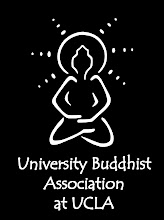Tibetan leaders, politicians, and activists are participating in a week-long summit in Dharamsala, India, to discuss the future of Tibet without the leadership of the Dalai Lama. After the Dalai Lama announced that he has given up negotiations with China, he leaves the future of Tibet into the hands of the Tibetan people. However, the conservatives supporting further talks are in conflict with the young radicals fighting for a free Tibet.
Time magazine writes about the summit.
"The meeting, Barnett says, is 'explicitly a response by the Dalai Lama to criticism that his charisma has cramped any space for real discussion.' But no one is expecting Tibetans to suddenly shift course from the 'middle path,' which advocates for negotiating with Beijing for autonomy, not independence, and has been steered so carefully by their spiritual leader for the past 30 years. Instead, the summit will be considered a success if it reaches some consensus on how to choose the Dalai Lama's successor', and if it brings Tibetans together to discuss issues like education and how to involve young Tibetans in the political process. Barnett notes that China may find it more difficult to control a movement that is strong and unified around a common purpose. 'If they can achieve that, it will really be quite significant,' he says. And perhaps the most radical move of all. "
Time magazine writes about the summit.
"The meeting, Barnett says, is 'explicitly a response by the Dalai Lama to criticism that his charisma has cramped any space for real discussion.' But no one is expecting Tibetans to suddenly shift course from the 'middle path,' which advocates for negotiating with Beijing for autonomy, not independence, and has been steered so carefully by their spiritual leader for the past 30 years. Instead, the summit will be considered a success if it reaches some consensus on how to choose the Dalai Lama's successor', and if it brings Tibetans together to discuss issues like education and how to involve young Tibetans in the political process. Barnett notes that China may find it more difficult to control a movement that is strong and unified around a common purpose. 'If they can achieve that, it will really be quite significant,' he says. And perhaps the most radical move of all. "






No comments:
Post a Comment